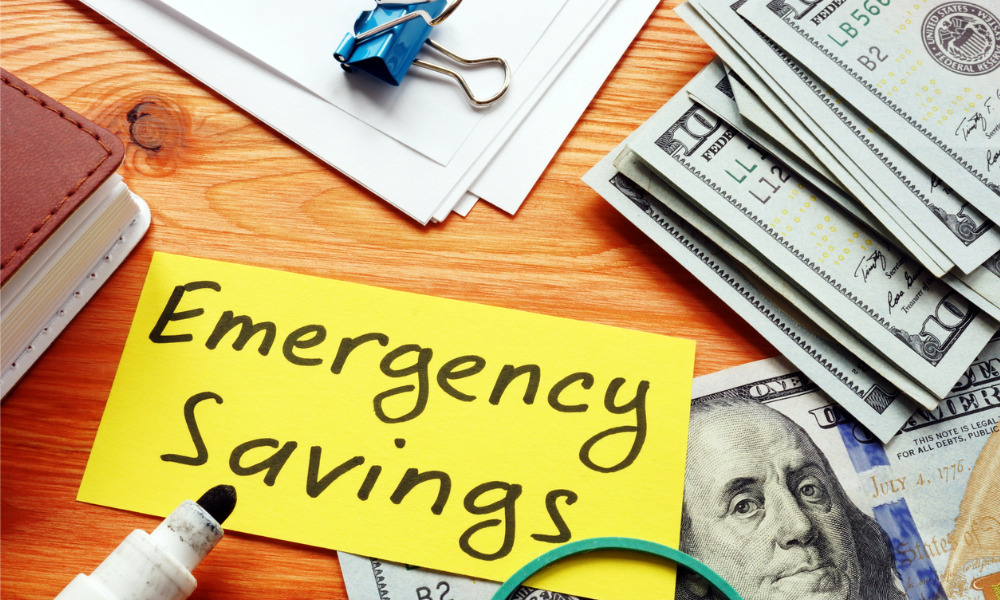

Saving for a rainy day has been sound financial advice for generations, but when the rain keeps coming it’s easy to fall behind.
A new report from Bankrate.com reveals that 81% of Americans have not added anything to their emergency savings this year, and 6 in 10 say they feel behind in maintaining this valuable pillar of financial security.
Since the start of 2023, less than one-fifth of poll participants have boosted their emergency savings, with 32% saying that they now have less saved including 14% who have somewhat less and 17% who have significantly less. Three in ten have about the same.
But another 20% say they did not have an emergency fund at the start of the year and still do not.
The cost of living is a clear barrier to saving more, with 57% citing inflation as their reason for not adding to their emergency savings, while 38% say they have too many expenses to top up the rainy day fund.
Aside from inflation, having too much debt (21%), a change in income or employment (18%), rising interest rates (17%), and encountering a large emergency expense (13%) were all cited as reasons for not saving more, while 17% said they were comfortable with what they have saved.
However, 8% admit that they have spent too much on leisure and other discretionary expenses rather than saving.
Acknowledging the importance of having emergency savings, just 22% feel they are on track, with 38% saying they are significantly behind and 22% feeling somewhat behind. Just 18% are ahead.
More than half of those who took part in the survey who are behind their savings goal say it will take a year or more to catch up but 16% said it will take at least five years and 13% do not expect to ever catch up.
“Cutting household expenses in a meaningful way may not be feasible with the run-up in prices for mainstay items such as shelter, food, and energy over the past couple of years,” said Bankrate chief financial analyst Greg McBride. “Consider tapping into the tight labor market with a side hustle, freelance or contract work, or even taking on a second job for a period of time in order to make headway on boosting savings.”

Relationships are key to our business but advisors are often slow to engage in specific activities designed to foster them.

Whichever path you go down, act now while you're still in control.

Pro-bitcoin professionals, however, say the cryptocurrency has ushered in change.

“LPL has evolved significantly over the last decade and still wants to scale up,” says one industry executive.

Survey findings from the Nationwide Retirement Institute offers pearls of planning wisdom from 60- to 65-year-olds, as well as insights into concerns.
Streamline your outreach with Aidentified's AI-driven solutions
This season’s market volatility: Positioning for rate relief, income growth and the AI rebound
